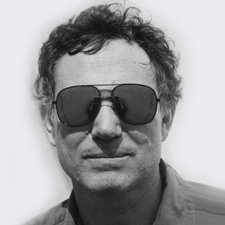Lies: Difference between revisions
m Text replacement - "Laughing back - a movie for radio" to "Laughing Back - A Movie For Radio" |
m years |
||
| Line 74: | Line 74: | ||
[[Category:1982]] | [[Category:1982]] | ||
[[Category:WBAI And NPR Playhouse]]{{Series|series=WBAI And NPR Playhouse}}{{Cast|cast=[[Mark Hammer|Mark Hammer]], [[F. Murray Abraham]], [[Barbara Sohmers]], [[Christina Moore|Christina Moore]], [[Tim Jerome]], [[Arthur Miller]], [[Jane Hunt|Jane Hunt]], Joe Frank}} | [[Category:WBAI And NPR Playhouse]]{{Series|series=WBAI And NPR Playhouse}}{{Cast|cast=[[Mark Hammer|Mark Hammer]], [[F. Murray Abraham]], [[Barbara Sohmers]], [[Christina Moore|Christina Moore]], [[Tim Jerome]], [[Arthur Miller]], [[Jane Hunt|Jane Hunt]], Joe Frank}} | ||
[[Category:Show]][[Category:Show_by_date| | [[Category:Show]][[Category:Show_by_date|19820306]] {{Airdate|airdate=1982-03-06}} | ||
Revision as of 10:01, 23 March 2021
| Series | |
|---|---|
| WBAI And NPR Playhouse | |
| Original Broadcast Date | |
| 3/06/1982 | |
| Cast | |
| Mark Hammer, F. Murray Abraham, Barbara Sohmers, Christina Moore, Tim Jerome, Arthur Miller, Jane Hunt, Joe Frank | |
| Format | |
| 1 hour | |
| Preceded by: | Questions |
| Followed by: | A Tour Of The City (Part 1) |
"At some point when I was in high school I lost my draft card, and my folks changed houses, and I think there was a period of two years there, or three years, or four years, when the Army lost me. They couldn't find me."
Lies is a program Joe Frank produced as part of the series WBAI And NPR Playhouse. It was originally broadcast in 1982.
Synopsis
- A guy avoids the draft by pretending to take drugs.
- A military intelligence officer at a translation center in Vietnam during the war.
- A pair of radical women screw up a revolutionary bank robbery and go on the run.
- A man talks about having been politically active.
- A man meets a woman in a deli; "it had the cadence of witty repartee without the wit;" her roommate makes bagel and cream cheese paperweights, he goes to her place later. She tells him about a rape long ago, about a marriage to a man who shits in bed.
- Joe is a social climbing night watchman, lists things he must do every night, discusses office people.
- Scenes from the office - a board room filled with terror, one with giggling idiots, a woman shouts colors against a background of machinery.
- Joe buries his boss and takes his place.
Music
- "Ceres Motion" - Mother Mallard's Portable Masterpiece Co. (from Mother Mallard's Portable Masterpiece Co., 1973) | YouTube
- "T on a White Horse" - Eberhard Weber (from The Following Morning, 1977) | YouTube
- "Part One" - Philip Glass (from Music in Twelve Parts, 1976) | YouTube
- "Music For 18 Musicians" - Steve Reich (from Music For 18 Musicians, 1978) | YouTube
- "I Will Wait For You" - Mantovani (from To Lovers Everywhere, 1971) | YouTube
Miscellanea
- The "Night Watchman" segment was broadcast as the conclusion of All Things Considered on Halloween, October 31, 1979.
- The "fugitive radical women" segment appears to have been inspired by Susan Edith Saxe and Katherine Ann Power, who committed robberies in 1970.
- The first 30 minutes of the 1985 Martin Scorcese comedy After Hours plagiarizes the plot setup and portions of woman-in-the-deli segment from "Lies". Joe recounts learning about this plagiarism in the extended version of No Show, and his decision to accept a settlement and remain uncredited on the film. Coincidentally, Larry Block appears as a taxi driver in the film, a role that originates with this episode.
- Joe's response to an "After Hours" question on his user forum in 2007:
"Lies" was a show produced for National Public Radio in 1982. It included a ten-minute segment about an encounter years earlier with a strange young woman in Greenwich Village. I was living in Washington, D.C. at the time of the broadcast, producing programs for NPR. In September 1985 a friend called from New York. He asked if I'd seen Scorsese's new film, "After Hours." I told him it hadn't yet opened in D.C. He said, "Fly up to New York today and see it. It will be worth it." He wouldn't explain why.
So I took a cab to National Airport, caught the next flight to La Guardia, took another cab to the movie theater in Manhattan and saw the film. It was an astonishing experience because, within the first few minutes, I observed the identical story from my radio show unfolding on the screen word for word. Let me add, however, that having used my story as the foundation for his screenplay, the remainder of the film was the work of the writer. It's an exaggeration to suggest the entire film was based on my radio show. But I didn't know until your post that the original title had been "Lies." What must the screenwriter have been thinking to place himself in such jeopardy?
In any case, I had not yet met Larry Block in 1982, so it was a surprise to find, years later, that we both had a connection to "After Hours."
Scorsese is a great American film director and "Taxi Driver" and "Raging Bull" are classics. But I thought "After Hours" was inferior. Maybe the film was too close for me to see clearly.[1]
Commentary
Please see guidelines on commentary and share your personal thoughts in this section.
External links
- The Scandalous Origins of Martin Scorsese’s After Hours. Andrew Hearst, May 27, 2008.
Footnotes
- ↑ JoeFrank.com forum. March 5, 2007.
